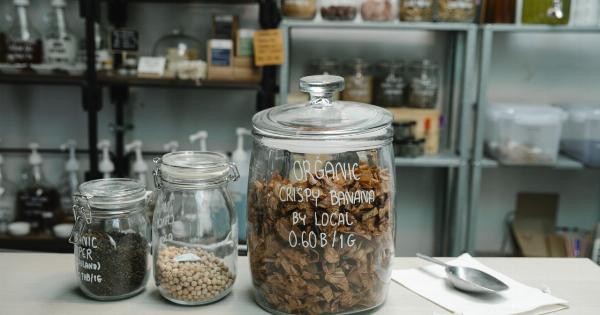As parents, we naturally want to show affection to our children. One common way to demonstrate love and care is through kisses.
While showing physical affection is important for bonding and emotional development, it is crucial to be aware of the potential risks associated with kissing your children on the mouth. In this article, we will explore why refraining from mouth-to-mouth kisses can help prevent the spread of germs and keep your little ones healthier.
Understanding the Role of Germs
Germs are microorganisms that are everywhere around us, including bacteria, viruses, and fungi. Some of these organisms can cause various infections and diseases. Children have developing immune systems, making them more susceptible to these germs.
While most of the germs are harmless, there are certain kinds that can lead to serious health problems if transmitted.
The Risks of Mouth-to-Mouth Kissing
Kissing on the mouth can introduce harmful germs into your child’s system. Here are some reasons to consider:.
1. Oral Bacteria
The mouth is full of bacteria. When you kiss your child on the mouth, you may inadvertently transmit harmful bacteria from your mouth to theirs. These bacteria can lead to oral infections, such as tooth decay and gum diseases.
2. Common Colds and Viruses
Cold and flu viruses are easily transmitted through close contact, including kissing.
While it may be tempting to show affection even when you are feeling under the weather, it is essential to remember that young children have weaker immune systems, which means they are more susceptible to catching these illnesses.
3. Herpes Simplex Virus (HSV)
HSV is a common virus that causes cold sores or fever blisters. Even if you don’t have visible sores, you may still carry the virus and unknowingly transmit it to your child through kissing.
HSV can cause painful blisters and infections, particularly in infants, whose immune systems are not fully developed.
4. Respiratory Infections
Respiratory infections, such as respiratory syncytial virus (RSV) and influenza, can easily spread through kissing due to the close proximity and exchange of saliva.
These infections can lead to severe complications, especially in young children, including pneumonia and bronchiolitis.
5. Gastrointestinal Infections
Gastrointestinal infections, commonly caused by viruses like norovirus and rotavirus, can also be transmitted through mouth-to-mouth contact.
These infections can cause symptoms like vomiting, diarrhea, and dehydration, which can be particularly dangerous for young children.
Preventing the Spread of Germs
While it’s important to limit mouth-to-mouth kisses, it doesn’t mean you can’t show affection to your children. Here are alternative ways to express your love while minimizing the spread of germs:.
1. Gentle Hugs and Cuddles
Physical touch is a crucial aspect of bonding with your child. Opt for gentle hugs and cuddles to show affection without the risk of transmitting harmful germs.
2. Forehead Kisses
Instead of kissing on the mouth, consider giving forehead kisses. This gesture can convey love and affection without the direct transfer of germs through saliva.
3. Hand and Cheek Kisses
In many cultures, hand and cheek kisses are a common way to show love and respect to children. These alternate forms of kisses keep the risk of spreading germs to a minimum.
4. Verbal Expressions of Love
Words are powerful, and expressing your love and admiration verbally can have a profound impact on your child’s emotional development. Tell them how much they mean to you regularly.
5. Regular Handwashing
One of the most effective ways to prevent the spread of germs is through frequent handwashing. Encourage your child to wash their hands before meals, after using the restroom, and whenever they come into contact with potentially contaminated surfaces.
6. Teach Proper Hygiene
As your child grows, teach them about good hygiene practices, including covering their mouth and nose while coughing or sneezing, using tissues, and disposing of them properly.
This education will instill healthy habits and reduce the risk of infections.
7. Avoid Sharing Personal Items
Gently remind your child not to share personal items such as utensils, cups, or toothbrushes with others. Sharing these items can easily spread germs and increase the risk of infections.
8. Immunizations
Ensure your child’s immunizations are up to date. Vaccinations play a critical role in preventing various infections and diseases, protecting your child from serious illnesses.
9. Promote a Healthy Lifestyle
A healthy lifestyle, including a balanced diet, regular exercise, and adequate sleep, strengthens the immune system and reduces the risk of infections.
Encourage your child to engage in physical activities, eat nutritious meals, and maintain a consistent sleep schedule.
10. Lead by Example
Children learn by observing their parents’ behaviors. By practicing good hygiene habits yourself, you are setting a positive example for your child to follow.
Wash your hands regularly, cover your mouth when you cough or sneeze, and avoid close contact when you are feeling unwell.
Conclusion
While kissing your children on the mouth may seem harmless and affectionate, it can inadvertently spread germs and lead to various infections and illnesses.
By refraining from mouth-to-mouth kisses and adopting alternative ways to demonstrate love and care, you can help prevent the spread of germs and keep your children healthier. Remember, it is the action, not the intention, that matters when it comes to protecting your child’s health.



























